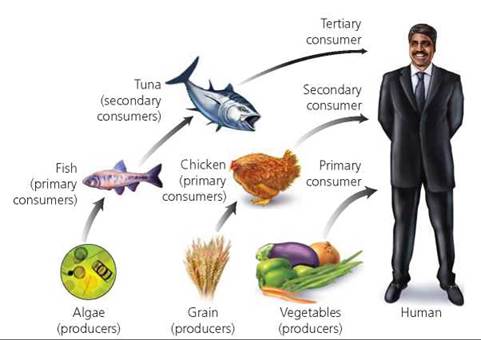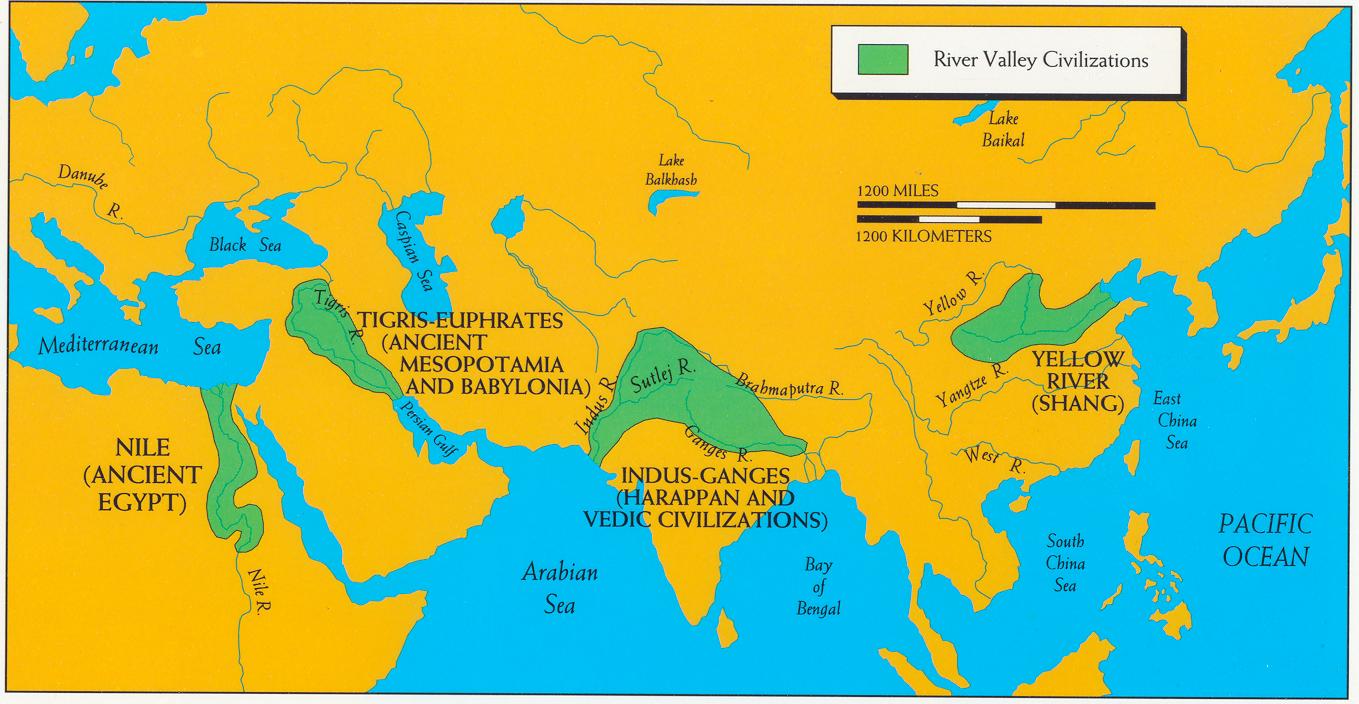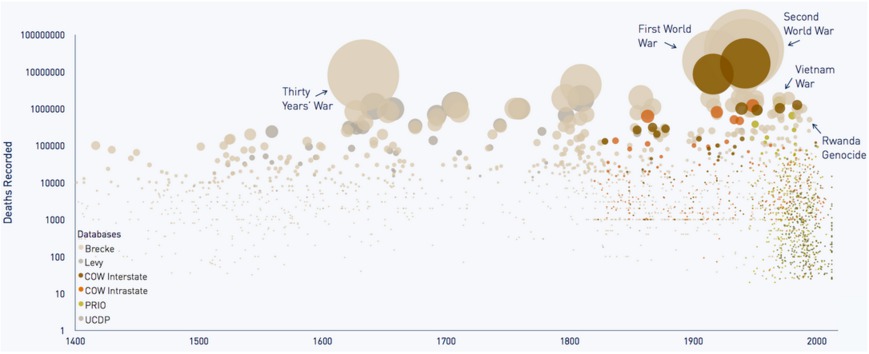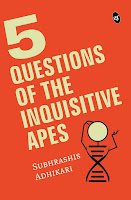Srinivas, just 30 years old, five years younger than me, was
shot dead by an American in Kansas. Before shooting, the American yelled, ‘Get out of my
country’. The irony is that it is a country that is made up of immigrants who
almost wiped out the locals.
A Muslim women was attacked and bitten by a man in Vienna
for wearing hijab. How could a Muslim wear more cloths than a Christian?
A Tanzanian man was
beaten up brutally in Delhi because he had more melanin than Indians. Aren't we the most racist country?
And then there is Syria.
What is wrong with the world?
To understand the problems of modern day let us take a look at
the past.
In all the glamour and extravaganza of being at the top of
the food chain we forgot a simple truth, we are just animals. We are coded to
survive, not just as individuals, but as species. There are two ways of doing
that. Spread your genes, and/or stop your competitors from spreading theirs.
50,000 years
ago our species was slowly rising to the top of the food chain. There were less
people and thus less meeting with strangers. Those rare occasions when two
different tribes met, there was bloodshed. Life, however, was dangerous.
Mortality rate was high. The only way the tribe could survive was reproduce in
numbers that outdid the deaths. And, quite convincingly, the favoured deity of
the time was the fertility mother goddess.
"In the beginning there was no consciousness. With consciousness was born fear and hope. From those two primordial ingredients - fear of extinction and the hope of survival- god was created.
Hope is a very strong emotion, especially hope about the
distant future that does not exist. It comes out of intelligence, a gift of
evolution that allows our species to project information into the future. It helps us plan ahead. It is
a weapon of mass destruction. It is a weapon that allowed us to defeat much
stronger enemies and climb right at the top of the food chain.
10,000 years
ago human beings settled down into agricultural societies. The settlements
mostly happened around the fertile rivers, like Yellow River, Nile River and Indus
River. As population grew, fights between different settlements became common. People
had no connection to their land, but were proud of their tribes. However, now
they had a bigger enemy. Fertility was no more the biggest issue. The biggest
danger now came from natural calamities. Individual settlements were not strong
enough to fight the mighty rivers that flooded unpredictably. Again, quite
conveniently, new gods were created. These gods were the gods of nature like
wind, river, fire, lightening, etc.
Fighting with each other was not helping the ultimate goal of our species - survival. Spreading one’s genes was more important that stopping the spread of the genes of one’s competitors. Human intelligence thus helped programme a new formula to fulfil the goal – collaboration. The smaller tribes collaborated to form civilisations. Together they could tame the nature. Stronger houses helped them weather the storm, while canals controlled the floods. Chinese civilisation, Egyptian civilisation and Indus Valley civilisation sprang up. An idea of community was established and a common culture evolved. The less the group moved, the more they got attached to the land where they settled.
Fighting with each other was not helping the ultimate goal of our species - survival. Spreading one’s genes was more important that stopping the spread of the genes of one’s competitors. Human intelligence thus helped programme a new formula to fulfil the goal – collaboration. The smaller tribes collaborated to form civilisations. Together they could tame the nature. Stronger houses helped them weather the storm, while canals controlled the floods. Chinese civilisation, Egyptian civilisation and Indus Valley civilisation sprang up. An idea of community was established and a common culture evolved. The less the group moved, the more they got attached to the land where they settled.
Civilisation looked very stable, but they were doomed to
fail in the long run. As population kept growing the different civilisations
came in conflict with one another. And bloody battles followed. It was quite
predictable. It was human nature. That is how they are programmed – stop the
spreading of the genes of the competitors. The problem of survival was not coming
from nature anymore.
"Big civilisations also required loyalty to one Supreme Being. This new world needed new gods, and it got one. Monotheism was born. There was one god, who was all powerful and omnipresent, but could not be seen.
The clash of civilisations could not last forever. Intelligence
came up with a formula once more– bigger collaboration. Thus was born empires,
big empires - Persian Empire, Greek Empire, Chinese Empire, Mayurian Empire, Mughal
Empires and the British Empire.
1000 years
ago the big civilisations were fighting with each other. There were crusades, wars
and a lot of violence around the globe. Stability did come, but not before few
more sacrifices. The ultimate sacrifice came during the World Wars. Once more a
new formula was made – even bigger collaboration… Nationalism. Boundaries were
drawn and nations were created. Boundaries worked fine and world became more
peaceful than it ever was. Instead of cultures or states or tribes, people’s ownership
changed to artificially drawn borders. Nationalism worked.
"For the first time in the history of the world, more people died of suicide than killed by others. The number of armed conflicts has reduced significantly in the past few decades. Believe it or not, no matter what the media likes you to believe, we are living in a very peaceful world.It has been proven statistically by Steven Pinker. Since the advent of civilisation, the world was never this peaceful.
Modern world
brought new challenges. Human population grew exponentially and filled up the
surface of the earth. In palaeontology there is a term called index fossils.
These are species that had wide geographic extent but existed for a very short
duration. Their fossils, thus, act as time markers. The presence of these
fossils helps us identify the age of the rocks that contain them. Our species
have already fulfilled the first criteria of index fossils- wide geographic
extent. The challenge we have now is to stop ourselves from fulfil the second
criteria. Thus, a new formula was created – The biggest collaboration of all …
Globalisation.
"Science and technology brought the world closer. The rising world economy created more hope than fear. The relevance of god was reduced. Nationalism started to fade…but not for long.
The economic bubble did burst in early 21st
century. Globalisation works when economy rises and there is enough hope to
fuel it. When economy declines, people loose job. Fear gets the better of hope,
and god returns alongside terrorism. So does nationalism. That’s when we stop looking at the future
and try to hold on to the past. Let’s bring back the great Islamic Empire,
let’s make America great again, let’s kill those who eat beef! That is what is
wrong with the world. Actually there is nothing wrong. We are just being
humans. Remember the goal – spread your genes as fast as you can, and/or reduce
that of your competitors.
There was a time when your ownership to your family was more
important than your community. There was a time when you ownership to your
king, region, regional god was more important than a non-existent nation. Now we live in an era where we think those
who say that their state is bigger than the nation is a fool. We claim that
those who think their religion is more important than their nation are wrong
and misled. Nation comes first, and those who say anything different must be
punished. Our perception of what’s right change with time. Where will we be in
the future? Is there a solution?
Future has
to be different from the present, it always has been. Our biggest problems
today are global – global warming, global economic slowdown, robots,
technologies and AI taking over jobs globally. The question is no more about
the survival of a country, but it is about our survival as a species.
Nationalism is not going to help us. We need global citizens.
Gurmehar Kaur made a statement, ‘Pakistan did not kill my
dad, war killed him’. The statement is irrelevant in today’s world. Nationalism
still plays a big part in our lives. It is irrelevant as long as people from Pakistan kills people on this side of the border, and vice
versa. However, if majority of people
from both sides of the border says the same thing, then suddenly the statement
starts making sense. Then it becomes a powerful tool to stop the war. Her
statement is irrelevant in today’s context, but not a wrong statement by any
means that people can ridicule. Pakistan is just a piece of land that contains
our pride heritage sites of Harappa, Mohenjo-Daro and Taxila. Pakistan is just
a piece of land that contains the birth place of Guru Nanak. Pakistan is a
piece of land where few Pakistanis made sure that the minority Hindus could
celebrate Mahashivratri in peace. Pakistan did not kill her dad. It is the war
fought by few Pakistanis, and instigated by few more, that killed her father. Her
statement is not wrong. But it is irrelevant as long as we don’t have enough
global citizens on either side of the border to make the borders irrelevant.
If we do to take the next step in our cultural progress and
manage to find a way to make borders irrelevant, then just imagine - all the
huge sums of money wasted globally to protect the artificial boundaries we call
nation, or in building walls, could be used instead for the betterment of
humanity. We could save ourselves long enough to find a new planet to consume. And maybe, just maybe, we won’t end up as time markers for a future species.





























